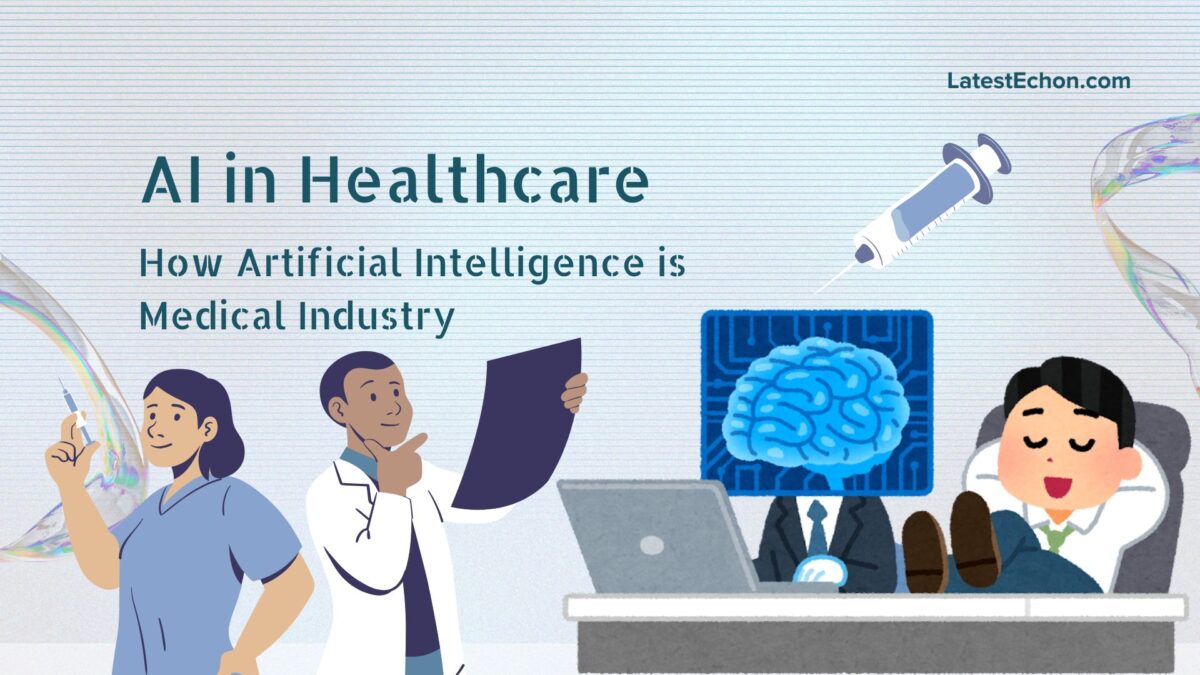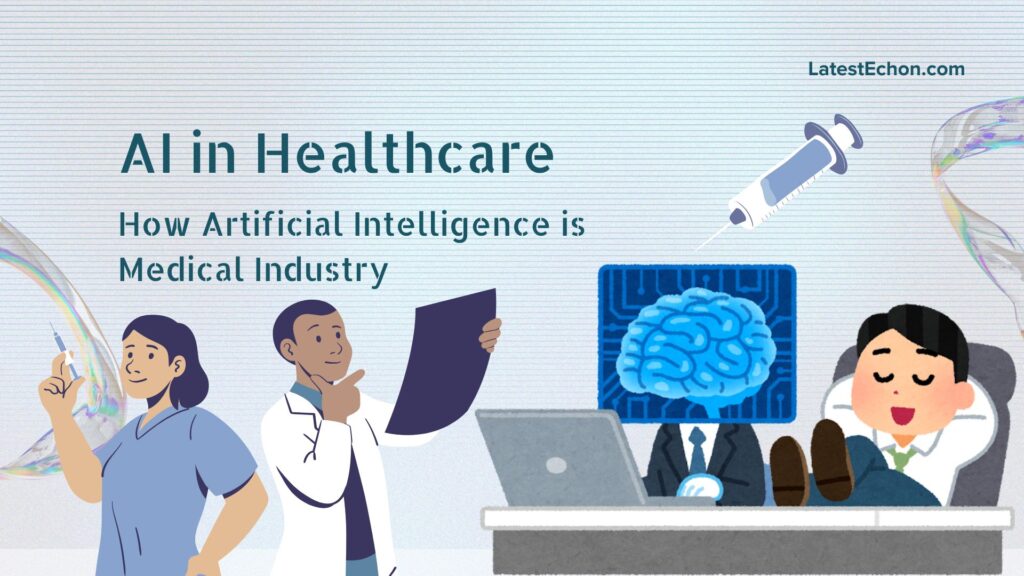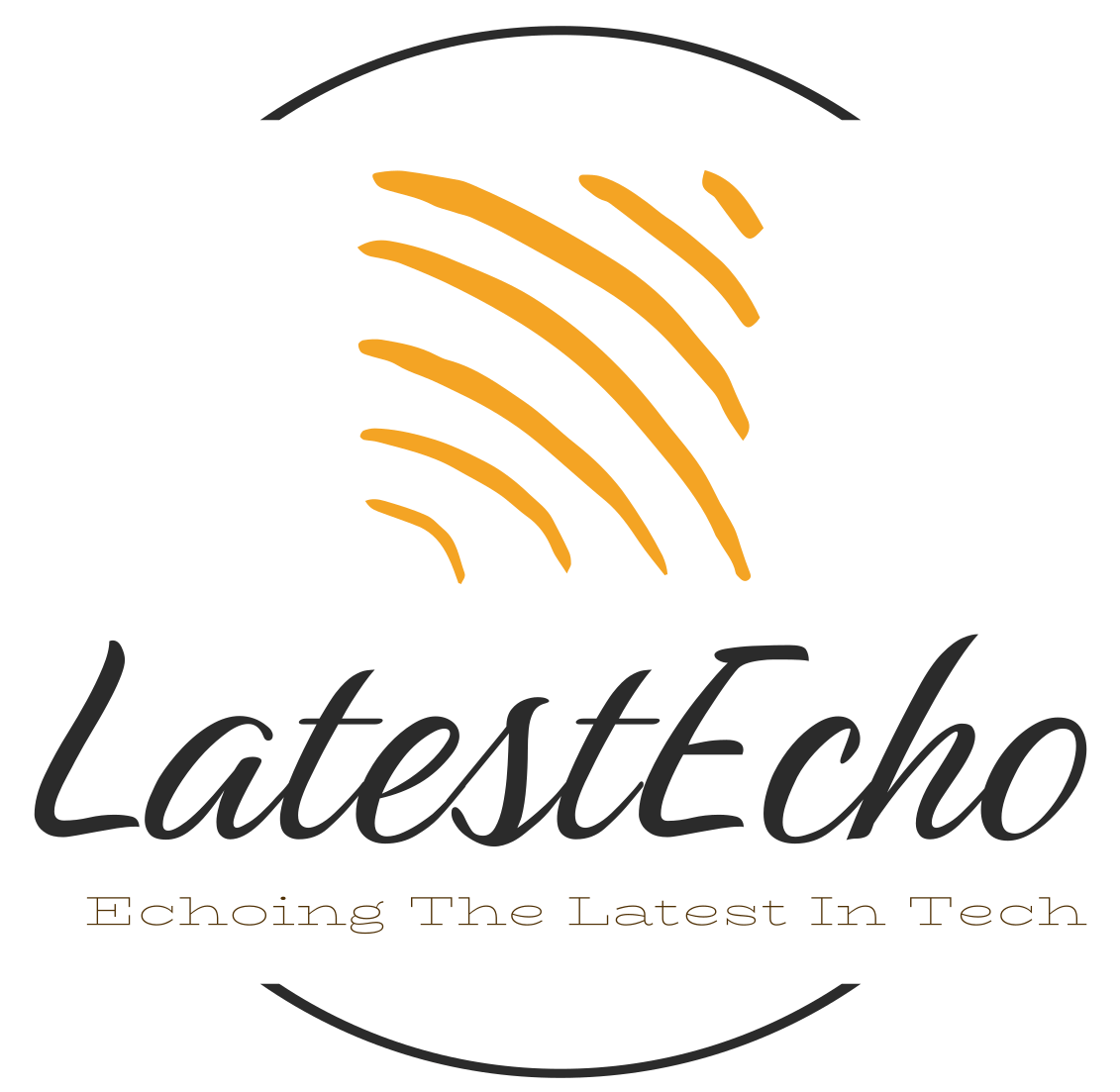
AI in Healthcare: Revealing the Hidden Power
By 2030, it’s unimaginable where the market value of AI in healthcare sector going to be. Over a decade we can see how artificial intelligence has transformed from a futuristic concept into an indispensable tool in modern medicine. Let’s take you through this fascinating journey of how AI is revolutionizing patient care, improving outcomes, and making healthcare more accessible than ever before.
Highlights:
- AI in healthcare is projected to reach $187.95 billion by 2030, revolutionizing everything from diagnosis to treatment planning.
- Medical diagnosis accuracy has improved by up to 95% with AI assistance, potentially saving thousands of lives through early detection.
- Healthcare facilities using AI report up to 40% reduction in administrative costs while significantly improving patient care quality.
- Recent FDA approvals of AI-powered medical devices mark a new era in healthcare technology adoption and regulation.
The Impact of AI on Medical Diagnosis
The world of medical diagnosis has been completely transformed by artificial intelligence. Picture this: We can think of when doctors had to spend hours poring over medical images to spot potential issues. Now, AI algorithms can analyze these same images in seconds with remarkable accuracy.
Some advanced AI diagnostic systems are achieving accuracy rates of up to 95% in detecting certain conditions – that’s often better than human specialists! From identifying early-stage cancers to spotting subtle abnormalities in X-rays, AI is becoming an invaluable partner in the diagnostic process.
The real game-changer here is how AI in healthcare is helping reduce diagnostic errors. We’re talking about potentially saving thousands of lives each year just by catching things that might have been missed before. And the best part? The technology keeps getting better and better with each passing day.
AI-Powered Personalized Treatment Plans
Remember the days of one-size-fits-all treatment approaches? AI is revolutionizing how we approach patient care by analyzing vast amounts of data to create truly personalized treatment plans.
We’ve seen countless cases where AI systems have helped identify the most effective treatments based on a patient’s genetic makeup, lifestyle, and medical history. It’s like having a super-intelligent assistant that can process millions of data points in seconds to find the perfect treatment match for each patient. The results have been nothing short of amazing. We’re seeing higher success rates in treatments, fewer adverse reactions, and better patient outcomes overall. And this is just the beginning!
Real-World Applications of AI in Healthcare Care
The practical applications of Artificial Intelligence AI in healthcare are truly remarkable. Electronic health records (EHRs) are now being enhanced with Artificial Intelligence AI capabilities, making it easier than ever to track patient histories and spot potential issues before they become serious problems.
Imagine having a virtual health assistant that can monitor your vital signs 24/7 and alert healthcare providers at the first sign of trouble. That’s not science fiction – it’s happening right now! Remote patient monitoring systems powered by AI are helping people stay healthier at home while reducing hospital readmissions.
The Future of AI in Healthcare Administration
One of the most exciting developments that we have witnessed over time is how Artificial Intelligence AI is streamlining healthcare administration. From scheduling appointments to managing insurance claims, artificial intelligence is making everything more efficient. The impact on cost reduction has been substantial. By automating routine tasks and improving resource allocation, healthcare facilities are saving millions while providing better care. It’s a win-win situation that benefits both providers and patients.
Also you can read How Will AI Impact Jobs in the Next 10 Years? ,
2025 Starts Strong with These Platforms
Challenges and Ethical Considerations for AI in Healthcare
Let’s be honest – implementing AI in healthcare isn’t without its challenges. Data privacy and security are major concerns. We need to ensure that patient information remains protected while still leveraging the power of Artificial Intelligence AI. There’s also the question of maintaining the human touch in healthcare. While AI in the healthcare is an incredible tool, it should enhance rather than replace the doctor-patient relationship. Finding the right balance is crucial for the future of healthcare.
When Did AI in Healthcare Become Popular?
We can still remember the pivotal moment around 2015-2016 when AI in the healthcare really started gaining momentum. While the foundations of AI in medicine date back to the 1960s with early diagnostic systems, the real breakthrough came with deep learning and improved computing power in the 2010s.
The game-changer? That was IBM Watson’s debut in healthcare around 2012. When Watson started helping doctors at Memorial Sloan Kettering Cancer Center with treatment decisions, it opened everyone’s eyes to the incredible potential of Artificial Intelligence AI in medicine. Suddenly, what seemed like science fiction was becoming reality right before our eyes.
The COVID-19 pandemic in 2020 really accelerated AI adoption in healthcare. We saw AI being used for everything from predicting outbreak hotspots to accelerating vaccine development. It was amazing to witness how quickly healthcare organizations embraced AI solutions when faced with unprecedented challenges.

Key Milestones in Evolution of AI in Healthcare
Back in 2016, when Google’s DeepMind developed an AI system to detect eye diseases, it marked a turning point in medical diagnostics. By 2018, AI systems were matching (and sometimes exceeding) human experts in various diagnostic tasks.
One of the most exciting developments came in 2019 when the FDA started approving AI-powered medical devices. This regulatory acceptance was crucial – it showed that AI wasn’t just an experimental technology anymore, but a legitimate tool in modern medicine.
Benefits of AI in Healthcare
The advantages of AI in the healthcare are absolutely incredible! This technology is transforming patient care in ways we never thought possible.
Enhanced Diagnostic Accuracy
The improvement in diagnostic accuracy has been phenomenal. Artificial Intelligence systems can now detect diseases like breast cancer with an accuracy rate of up to 99% in some cases. What’s even more impressive is the speed – analyses that used to take hours can now be completed in minutes! AI-powered diagnostic tools have shown a 32% reduction in diagnostic errors compared to traditional methods. That’s not just a number – that’s thousands of lives potentially saved through better detection and earlier intervention.
Cost Reduction and Efficiency
Healthcare facilities using AI for administrative tasks are reporting cost savings of up to 30%. But it’s not just about money – it’s about making healthcare more accessible and efficient for everyone.
Improved Patient Experience
AI is revolutionizing the patient experience in wonderful ways. From chatbots providing 24/7 support to personalized treatment recommendations, patients are getting better care than ever before. The satisfaction rates in facilities using AI-powered patient engagement tools have increased by an average of 45%.
Current Applications and Real-World Success Stories
The impact of AI on drug development has been revolutionary. Did you know that Artificial Intelligence helped reduce the initial drug discovery phase from 4-5 years to just 1-2 years? That’s incredible progress in making new treatments available faster!
Predictive analytics has been another popular applications. AI systems can now predict patient deterioration hours before traditional methods, giving healthcare providers crucial time to intervene. The success rates in preventing adverse events have improved by up to 60% in some facilities.
Future Trends and Predictions
The future of healthcare AI looks incredibly promising. The combination of IoT devices and AI is creating a new era of preventive medicine. Imagine having AI-powered wearables that can predict health issues before they become serious – that’s exactly where we’re heading! The field of personalized medicine is exploding thanks to AI. By analyzing genetic data and patient histories, AI is helping create truly individualized treatment plans with significantly better outcomes.
Challenges of AI in Healthcare
While the benefits are enormous, we can’t ignore the challenges. Data security remains a top concern, with healthcare organizations investing heavily in protecting patient information while leveraging AI capabilities. Another significant challenge is training healthcare professionals to work effectively with AI systems. It’s crucial to strike the right balance between AI assistance and human expertise.
It is fascinating to see how quickly AI in healthcare has evolved. From its early days as a research concept to becoming an indispensable tool in modern medicine, the journey has been remarkable. The key to success has been finding the right balance between technological innovation and the human touch that makes healthcare so special.
Conclusion
As we continue to explore the possibilities of Artificial Intelligence AI in healthcare, one thing is crystal clear – we’re witnessing a revolution in medicine that will benefit generations to come. The key is to embrace these technological advances while ensuring they serve their ultimate purpose: improving patient care and saving lives.
FAQ:
- How is AI Used in Healthcare Today?
AI is revolutionizing healthcare through smart diagnostics, patient data management, and treatment planning. Today’s hospitals use AI algorithms to analyze medical images, predict patient risks, and streamline administrative tasks. Machine learning helps in drug discovery, while AI-powered virtual assistants provide 24/7 patient support. From radiology departments to pharmacy management, artificial intelligence is enhancing healthcare efficiency and accuracy across all departments. - What is an Example of AI in Health?
IBM Watson for Oncology stands out as a prime example, helping doctors create personalized cancer treatment plans. Google DeepMind’s AI system detects eye diseases with 94% accuracy. In daily practice, AI-powered clinical decision support systems analyze patient data and provide evidence-based treatment recommendations. These practical applications demonstrate how AI is improving patient care and medical outcomes. - What is the Benefit of AI in Healthcare?
Artificial Intelligence AI brings three major benefits to healthcare: improved diagnostic accuracy (reducing errors by up to 85%), lower costs through automation (30-40% reduction in administrative expenses), and better patient outcomes through personalized treatment plans. The technology enables 24/7 healthcare monitoring, early disease detection, and more efficient resource allocation, making healthcare more accessible and effective. - Will AI Replace Healthcare Workers?
No, AI won’t replace healthcare workers – instead, it enhances their capabilities. While artificial intelligence excels at data analysis and pattern recognition, it can’t replicate human empathy and complex decision-making. AI serves as a powerful tool that enables healthcare professionals to focus more on patient care by automating routine tasks. The future is not about the replacement, however it’s about the collaboration between human and Artificial Intelligence AI.

Decentralized Applications (dApps): The Next Big Thing in 2025 - Latest Echo
[…] Also you may read: Cryptocurrency: A Bold New Era in FinanceGenerative AIAI in Healthcare: Revealing the Hidden Power […]